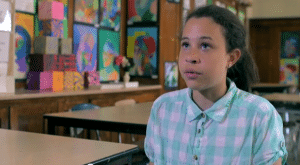What’s the Point of School If You Can’t Learn From Your Mistakes?
CompetencyWorks Blog
 One of the things about competency education that seems to confuse people is the idea of re-assessment. People jump quickly to an image of kids just taking tests over and over and over until they pass. A major education organization was quizzing me the other day – they asked, who gets to take re-assessments, when, how many times? There seemed to be an assumption that there should be a re-assessment policy rather than the responsibility being on the teacher to guide students through the cycle of learning toward proficiency.
One of the things about competency education that seems to confuse people is the idea of re-assessment. People jump quickly to an image of kids just taking tests over and over and over until they pass. A major education organization was quizzing me the other day – they asked, who gets to take re-assessments, when, how many times? There seemed to be an assumption that there should be a re-assessment policy rather than the responsibility being on the teacher to guide students through the cycle of learning toward proficiency.
What seems to be missing from this conversation is the concept of revision. In competency education we emphasize revision, not re-assessment. Sure there is re-assessment for students when they haven’t demonstrated proficiency yet. But the important part of the learning cycle is in the process of students revising their work or working with a tutor to help them correct misconceptions until they can explain their mistakes and do the problems correctly. Students can even learn how to manage part of the feedback and revision cycle themselves through self- and peer assessment.
Students at the Center’s video, Self-Assessment: Reflections from Students and Teachers, captures the importance of revision. It’s fun to listen to the students, and, as always, they get to the point. One student asks, What’s the point of school if you can’t learn from your mistakes?
Jobs for the Future has released three other videos as well on peer and self-assessment: Student Centered Assessment Jeopardy that reviews different forms of assessment, Peer Assessment: Reflections from Students and Teachers, and Heidi Andrade speaking about the culture of critique that is created through self- and peer assessment. It’s worth taking the 15 minutes to watch the videos if the concepts of self- and peer assessment are new to you.
photo credit: Student at the Center’s video at http://www.youtube.com/watch?v=CkFWbC91PXQ